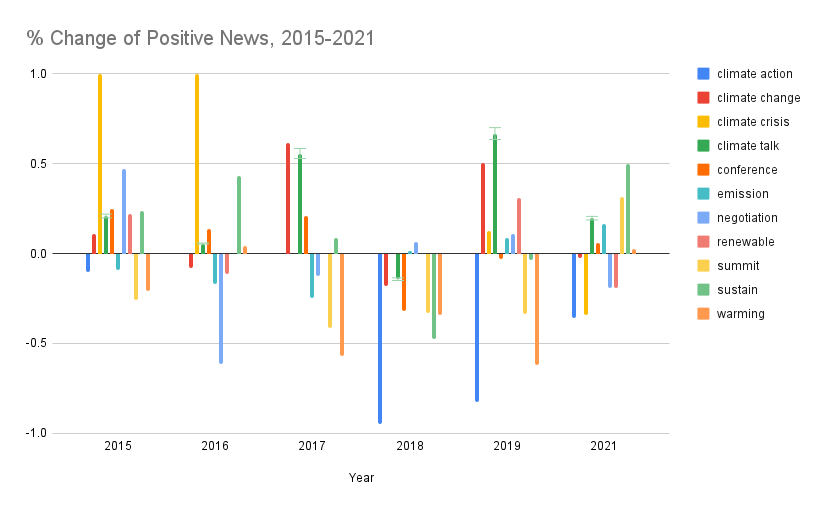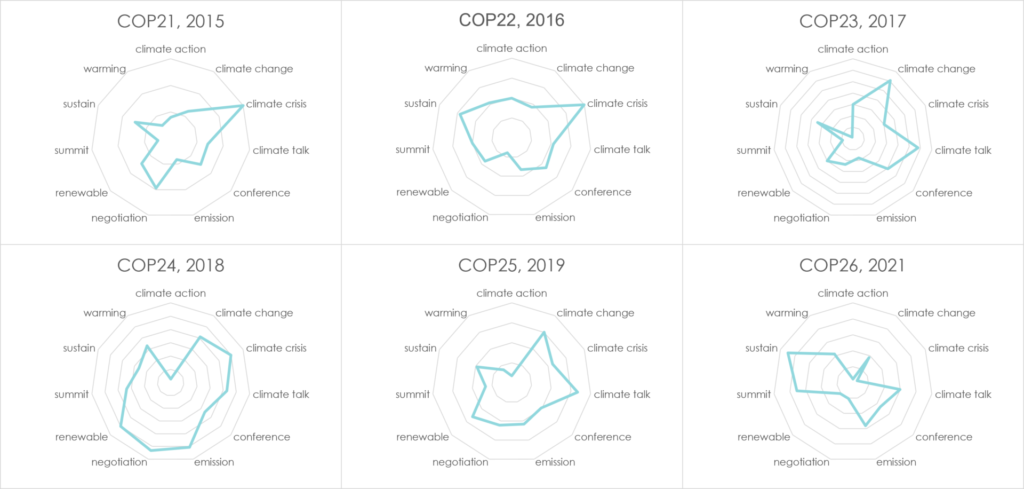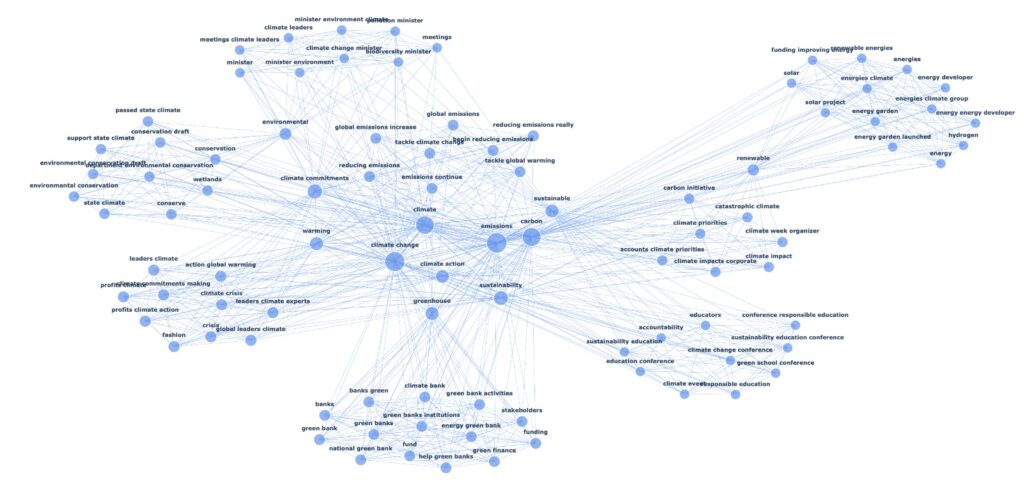Since 1995, the United Nations Framework Convention on Climate Change (UNFCCC) has held its annual Conference of the Parties (COP), where all Parties to the Convention –198 countries to date – gather to “review the implementation of the Convention and any other legal instruments that the COP adopts and take decisions necessary to promote the effective implementation of the Convention.” The Covid-19 pandemic made it impossible to hold the event in 2020, but COP has endured since its inception, held every year by a host nation or in Bonn, Germany, where the Convention’s Secretariat is seated.
Each COP builds on the previous Conference’s outcomes, with themes and goals that carry over from year to year. And yet every COP has a distinct mix of issues on the negotiation docket, and every event has its own discourse and mood. Since COP’s beginnings, climate change’s prominence has exploded in international media and geopolitical discussions, as real-world climate impacts have intensified. COPs of the last decade have attracted the world’s attention, resembling full-scale media circuses, as media outlets from every corner of the globe dispatch reports from host nations.
Beyond reporting COP outcomes, articles in popular media set expectations in the lead-up to the Conference, and then observers issue verdicts on the results, expressing positive, negative, or mixed sentiments on the multinational process and the key issues discussed. The media’s reactions to COP are important because media sentiment informs public opinion, influences governments, and is foundational to building the narratives that shape ongoing global efforts to address climate change.
Every COP is distinct, as are the media narratives surrounding each Conference. Arboretica examined the media discourse around each of the six COPs since 2015, conducting text analysis on the 100 most popular articles at the outset of the annual Conference and the 100 most popular articles published on the COP’s final day. We used this analysis to discern overall sentiment about COP and its most pertinent topics, finding that media sentiment regarding COP has become more negative, in general, since 2015.

The 2015 COP resulted in the Paris Agreement, a legally binding international treaty in which every one of the 196 signatories pledged climate change mitigating actions, and this outcome was widely heralded as a success. The good feelings were not long lasting, however, as sentiment went downhill from there. 2018 marked a low point for public sentiment surrounding COP, particularly pertaining to the Conference negotiations that year. Since 2018, impressions around COP have been more mixed, with some issues discussed in a more positive light and others upon which the media has reflected negatively.
The plummeting of media sentiment surrounding COP since 2015 may have less to do with the Conference itself and more to do with the political shifts of the intervening years. The U.S.’s election of Donald Trump as President in 2016, and his administration’s subsequent withdrawal from the Paris Agreement certainly shrouded climate conferences with clouds of anxious uncertainty. Brazil’s election of Jair Bolsonaro in 2018 and the ascendance of other right-wing political leaders hostile to climate change mitigation likely added to the down feelings at recent COPs. Both Trump and Bolsonaro have since lost elections to leaders who are much more supportive of international climate efforts.

Our data analysis shows large swings in sentiment regarding COP outcomes since 2015, from the highs of 2016’s Paris Agreement to the lows of the Trump Administration’s intransigence in 2018. This analysis is a first step toward understanding media reactions to COP and a prelude to a more in-depth analysis of the sentiments surrounding COP27, which ended today, November 20. This further study will use more advanced text-analysis techniques to answer three key questions:
- What are the main topics discussed around COP?
- Which people and organizations influence these topics the most?
- What content and keywords are the main drivers of COP conversations?
We intend to explore these questions using data from news reports and twitter, compiling a larger dataset than the one we currently have.

Follow Arboretica and stay tuned for the COP27 media and influence report. Please contact us for questions and more insights.


